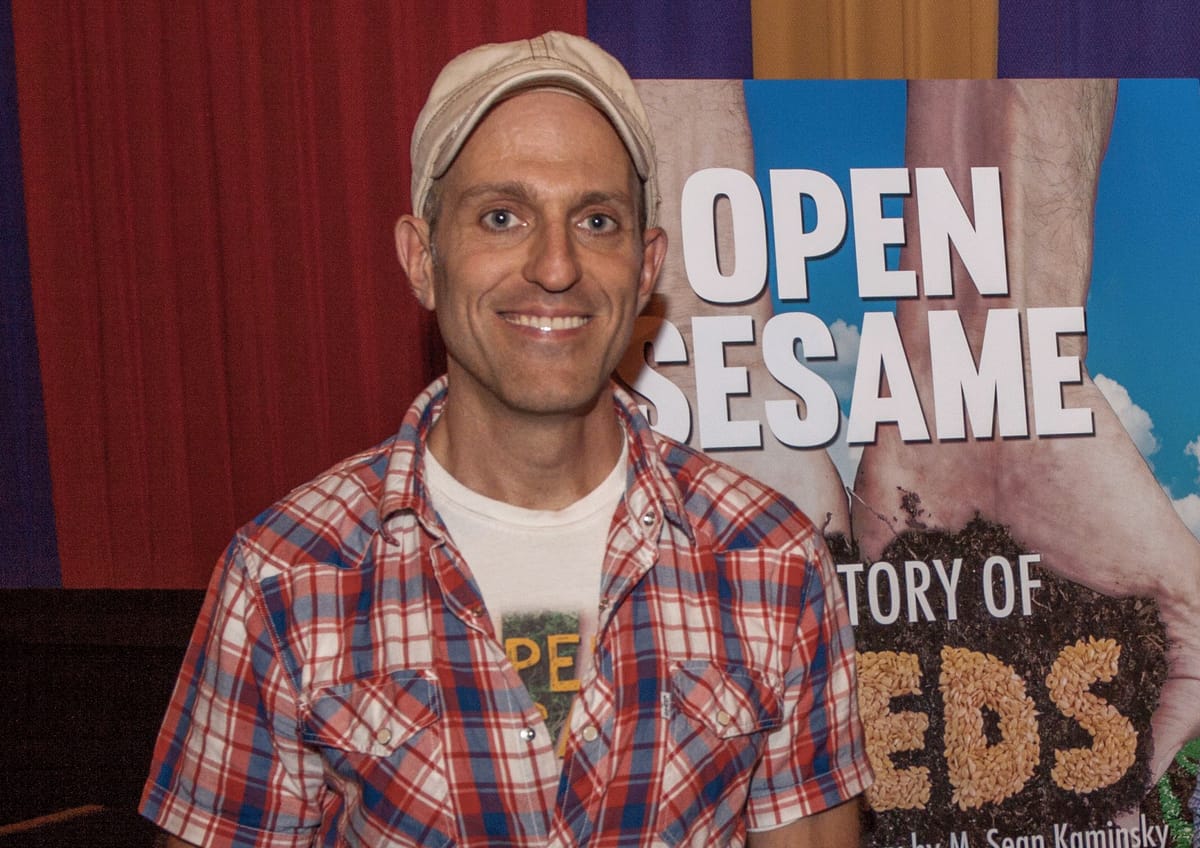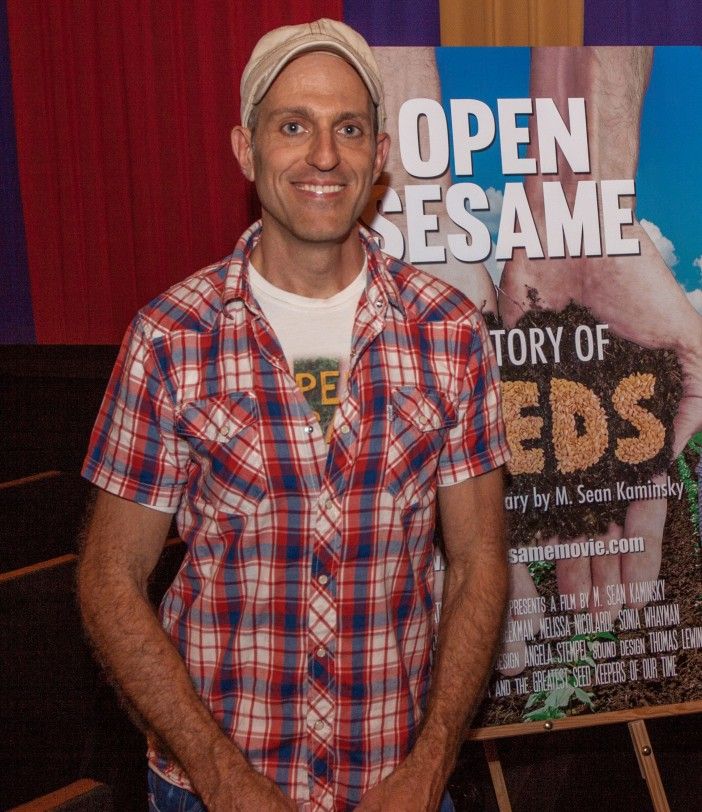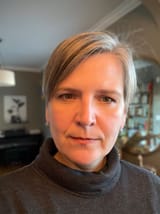Plow To Plate Presents Seeds & GMOs In Free Film Screenings


On the second Tuesday of every month, the meeting room above the Park Slope Food Coop fills with neighbors interested in the industry, politics, and culture of food. They gather to watch a thought-provoking film, take part in a Q&A, and enjoy some delicious refreshments — all for free, and for members and nonmembers alike. It’s called Plow to Plate, and below member Adam Rabiner shares what’s to come in the next two months.
In January we present Plow to Plate curator Sean Kaminsky’s film, Open Sesame – The Story of Seeds, and in November GMO OMG.
Open Sesame addresses genetic contamination, loss of diversity, and seed extinction. Seeds, the building blocks of fabric, foods, and fuels, are “shifting from a common heritage to sovereign property.” Kaminsky, a member of the Park Slope Food Coop’s Food Labeling Committee, shows that corporate patenting of seeds (Monsanto owns 82% of the world market) is slowly destroying the tradition of one generation of farmers passing seeds to the next.
Jeremy Seifert’s documentary, GMO OMG, explains how genetically modified organisms are affecting our health and the environment and tells how giant chemical companies are taking over the food supply and limiting our freedom to choose GMO-free food. GMO OMG, like Gasland 2, is also about a growing food movement and the power of citizens to change the political debate. Jeremy Seifert is to GMOs what Josh Fox is to fracking.
What follows is a Q&A with Sean Kaminsky and Gregg Todd, leader of the Food Labeling Committee.
PtP: What is the squad up to?
Todd: We are putting green dots on foods that are certified as non-GMO by the Non-GMO Project. We’re also redesigning our bulletin board on the regular check-out line and discussing a proposal to ban new products containing GMO ingredients. This is being done by a number of retailers elsewhere in the US.
Kaminsky: I was working on Open Sesame when I joined the labeling squad. As a new member, I was a bit surprised that the PSFC didn’t already label GMO products and that we were still allowing new products that contained GMO ingredients. Other co-ops have instituted bans or no longer purchase new products that contain GMOs. I hope that we will one day follow that example. That said, it’s a complex issue for the PSFC to deal with for various reasons. The current labeling initiative whereby non-GMO products are indicated by a green Non-GMO dot is definitely a step in the right direction.
PtP: Why should viewers go to two films dealing with a similar topic?
Kaminsky: There are so many aspects to explore in regards to the issues of seeds and GMOs. Ten films could easily be made and there still would be pieces that were left out. And of course those issues keep changing and evolving with time. Open Sesame and GMO OMG each cover different parts of the issue with completely different styles. Of course there is some crossover. But these are complex issues and learning about them from two different perspectives can only be helpful. I definitely encourage people to come to see both films.
Todd: GMOs were never designed to help consumers, only producers and growers. We are thus in effect the silent partners in this arrangement whose only job is to buy GMOs and be quiet about it. Personally I find that quite appalling. We are the guinea pigs in a massive experiment perpetrated without our knowledge or consent. Any films that create awareness of this reality should get a wide screening.
PtP: How is the truth in labeling case going in New York State and nationwide?
Todd: The truth in labeling movement is growing despite industry and governmental efforts to suppress it. Vermont has passed a mandatory GMO labeling law. In New York, labeling legislation made it out of committee for the first time in over a decade. Over 20 states have legislation pending. More and more people are asking, “Why are so many people suffering from allergies? Why are so many people overweight? Why are diabetes, high blood pressure, and cancer so prevalent?” We’ll never know the answers to these questions until we know what’s in our food.
PtP: What’s the future of the squad?
Todd: The shelf labeling squad’s work is tied to the labeling movement in general. It’s impossible for the squad to step too far ahead of what’s required by law. But we can be in the vanguard and that’s what we’re trying to do with our proposal to ban new products with GMO ingredients.
PtP: What should I be looking for in food labels?
Todd: The short answer: look for the green dot on shelf labels! Watch our GMO display on the regular check-out line for more shopping tips as we improve it over the coming months.
PtP: How has Open Sesame been received since its Manhattan premier in April?
Kaminsky: We premiered at the Union Square Theater in NYC and down in Washington, D.C. on Earth Day. Since then we’ve had over 25 screenings and counting in theaters and community venues across the country. It’s been very inspiring to receive emails from people and hear about direct actions people are taking as a result of having seeing the film. One woman in Rhode Island who works for Whole Foods saw the film and set-up a cash register fundraiser to support Seed Savers Exchange at Whole Foods across the state. She’s also organizing a free seed saving workshop in partnership with Seed Savers Exchange.
PtP: As curator of the Plow to Plate movie series, how do you feel about screening your own film?
Kaminsky: I felt a bit awkward about it at first, and I’d like to point out that it wasn’t initially my idea! One of my fellow PtP members suggested it. That said, I’m very proud to be part of the Plow to Plate series, both as curator and to be able to screen my first documentary feature as a director.
GMO OMG: Tuesday, November 11, 7pm
Open Sesame – The Story of Seeds: Tuesday, January 13, 7pm
Park Slope Food Coop, 782 Union Street, 2nd Floor
Free and open to the public. Refreshments will be served.
This story was originally published in the Park Slope Food Coop Linewaiters Gazette by Adam Rabiner.




